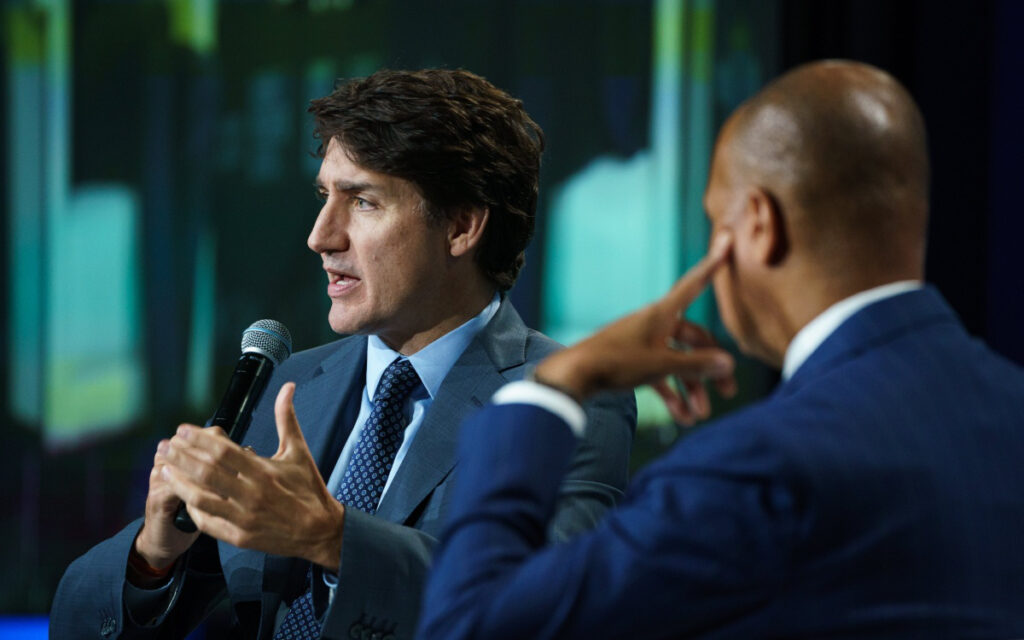
Prorogation could offer Trudeau a temporary reprieve. Pictured: Prime Minister Justin Trudeau. Photo Credit: Justin Trudeau/X.
As politicians return from the Thanksgiving break, Prime Minister Justin Trudeau finds himself with little to be thankful for. With opposition parties gaining momentum and the Liberal-NDP supply-and-confidence agreement collapsing, Trudeau’s leadership appears increasingly precarious. The potential for prorogation—a parliamentary tool allowing Trudeau to reset the legislative agenda by suspending Parliament—has once again surfaced as a controversial option, particularly as the Liberals face internal dissent.
Prorogation suspends Parliament, disrupting the legislative process and halting committee investigations, which is a significant concern given the number of key bills currently in progress. Committees investigating sensitive issues, such as ethics breaches or government mismanagement, are disband. This cessation of parliamentary business is particularly advantageous for the government, as it pauses potential political damage, but it leaves opposition parties without their primary platform to hold the government accountable.
For the opposition, this loss of momentum is a major drawback. Without regular sessions, the Conservatives and Bloc Québécois lose the ability to press Trudeau on issues of public concern, such as the economic challenges facing Canadians. Parliamentary debates on pressing matters, like inflation, housing, and national security, would be postponed, weakening opposition efforts to capitalize on the Trudeau government’s declining approval ratings.
Inside the Liberal Party, frustrations with Trudeau’s leadership are growing, as several MPs have reportedly called for his resignation. Many Liberals are concerned about the party’s prospects in the next election, with national opinion polls showing that Trudeau’s likability is waning. Economic challenges, particularly high inflation and a housing shortage, have contributed to this decline, despite Canada’s relatively strong post-pandemic economic recovery. Some Liberals believe a leadership change is necessary to re-energize the party and present a fresh face to voters ahead of the next federal election.
Although no formal mechanism exists within the party to force Trudeau out, the caucus is increasingly split over whether to ask him to step aside. Possible successors, such as Deputy Prime Minister Chrystia Freeland and Foreign Affairs Minister Mélanie Joly, have yet to formally declare their intentions. The internal debate reflects a broader concern about the party’s ability to secure a fourth term in government, with many MPs worried about being “decimated” in the next election.
Prorogation could offer Trudeau a temporary reprieve. By shutting down Parliament, Trudeau would have time to regroup and reset the government’s legislative priorities through a new Speech from the Throne. For a government under increasing pressure, like the current Trudeau regime, this reset could provide a way to refocus public attention on new initiatives while deflecting from the ongoing criticism over its handling of key issues.
However, prorogation carries significant political risks. Canadian voters are more informed about the process than in the past, and many may view its use as a tactic to avoid accountability. In 2020, Trudeau prorogued Parliament amid the WE Charity scandal, a move widely criticized as an attempt to sidestep investigations. If prorogation is perceived as a way to dodge pressing issues, such as the government’s response to inflation or housing, it could further erode public trust in the Liberals.
The combination of internal party dissent and public dissatisfaction has created a precarious situation for Trudeau. With opposition parties calling for a confidence vote, and key legislation hanging in the balance, Trudeau’s decision on whether to prorogue Parliament may define his leadership. If he chooses to prorogue, it could be seen as a sign that his grip on power is weakening. Should he resign, prorogation could offer the Liberal Party time to conduct a leadership race and reset under new leadership.
In any case, Trudeau’s next move will be critical, as he faces mounting pressure both inside and outside of Parliament. The question now is whether prorogation can provide the political reset the Liberals need, or if it will further fuel the fire calling for Trudeau’s resignation.

Daniel Perry is the Director of Federal Affairs at the Council of Canadian Innovators, leading national advocacy and engagement efforts. With experience in consulting and roles at the Senate of Canada, Queen’s Park, and the Canadian Criminal Justice Association, Daniel has helped political leaders and clients across various sectors achieve their public policy goals. A frequent media contributor and seasoned campaigner, Daniel holds a Master of Political Management from Carleton University.






